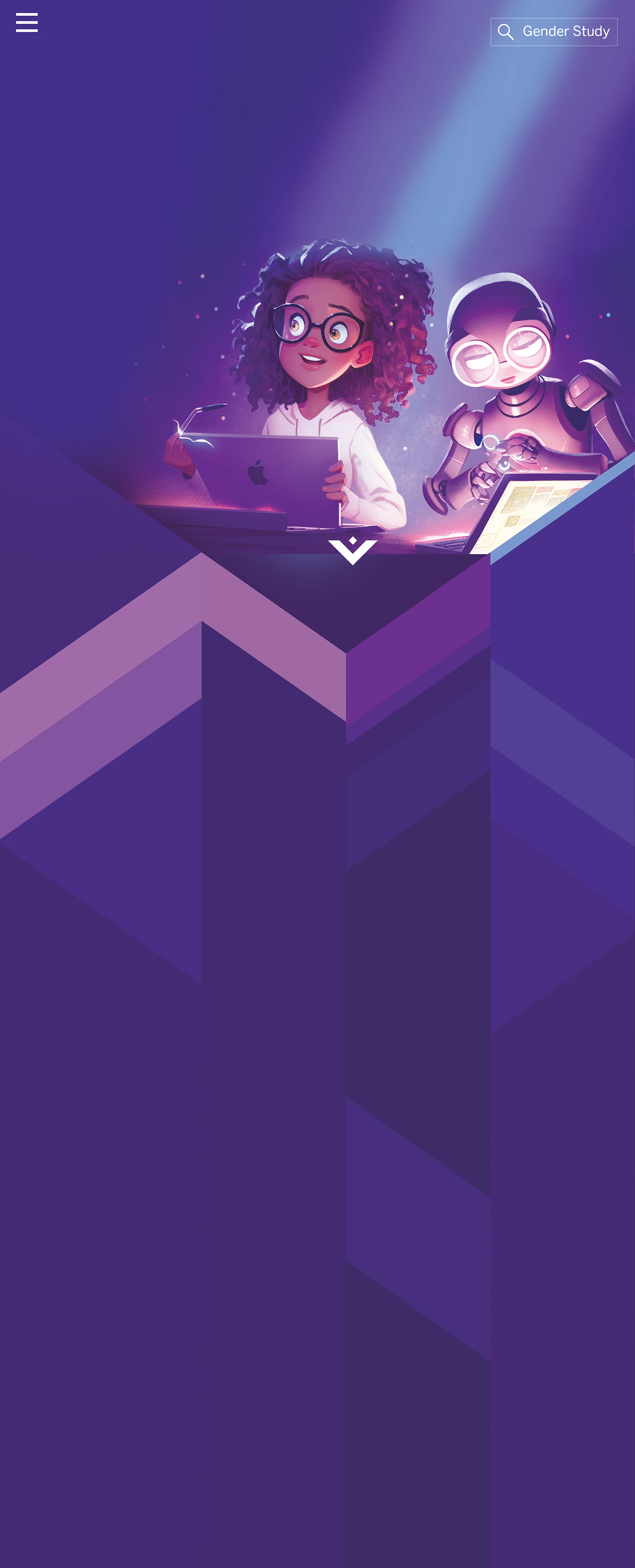Liu Siyi's innovative website combines her expertise in gender studies with AI technology to create a comprehensive and accessible resource for Gen Z exploring feminism and gender issues.

Intimate relationships, menstrual stigma, and sexual harassment — these are gender-related issues that many women encounter during their lives. However, when they seek to gain a better understanding of feminism and gender studies, it's easy to feel lost due to the limited resources or guidance available.
These were the same challenges faced by Liu Siyi, a 24-year-old from Pu'er in Southwest China's Yunnan province, who is currently pursuing a master's degree in Media and Gender at the Communication University of China in Beijing.
Drawing on her personal experiences and academic knowledge, Liu decided to combine her interests in gender issues with cutting-edge artificial intelligence (AI) technology to create a feminist website.
READ MORE: Gen Z transforming alcohol culture
Titled "Gen Z x Gender Exploration Guide", the website gathers over 200 high-quality resources, including podcasts, movies, books, music, video games, academic papers, communities, and organizations.
It even features a custom-built ChatGPT — Gender Study Helper — designed by Liu herself to provide easy-to-understand introductory guides on gender topics.
Liu describes the website as "a manual on gender and feminism", structured with young people's preferences and learning paths in mind.
According to her, many people encounter the concept of feminism through everyday gender-related topics or trending social issues, so she places this content at the beginning of the website.
Following this, she recommends various gender-friendly media works popular among Gen Z. Finally, she introduces serious scholars and academic research.
Liu explained that most feminist classics were written many years ago, which is why beginners, especially young people, find it hard to relate to or apply them without a contemporary connection.
"Feminism is crucial, but it needs people to keep it vibrant and relevant to the times," she said. "You need to find ways to connect what you care about with the present era."

Tech integration
Linking Gen Z culture with serious feminist knowledge became Liu's biggest challenge when designing her website. Fortunately, she found technology to be the perfect bridge.
Liu not only introduced her custom-built AI assistant but also explained how to use various AI tools for feminist learning and exploration.
For example, one can engage in deep discussions on gender topics using the large language model Claude, conduct concept searches with BeingAI or Baidu's ERNIE Bot (Wenxin Yiyan), find research papers on Google Scholar, or transform topics into illustrations using the text-to-image AI tool Midjourney.
The media content recommended on the site also addresses gender issues within emerging technologies, such as human-robot relationships and the "male gaze" in AI-generated art.
"Technology is a topic that naturally resonates with every generation of young people. AI is to Gen Z what the internet was to the '80s and '90s," Liu explained.
Liu's guiding principle for the website is "technology plus humanities". Despite being a liberal arts student, she has received support and feedback from friends with tech backgrounds.
One such friend, a woman working in STEM, introduced Liu to the "Tech Women" group on the review platform Douban, which connects women in the tech industry, particularly programmers.
This friend pointed out that many STEM fields are still male-dominated, making it difficult for women to thrive. Women like herself often focus on breaking through glass ceilings, leaving little time to address broader gender issues. That's why she was excited to see Liu's website, as it fills an important gap that many women in tech may not have the chance to explore.
Multimedia focus
Another standout feature of Liu's website is its diverse recommendations for gender-friendly media content.
"I think multimedia learning is a defining characteristic of Gen Z. For example, when I learn something, just reading books isn't enough; I need to watch documentaries and movies, and pick up knowledge in bits and pieces," Liu said. "Our generation's learning process is about finding logic within a collage of fragments."
The website features many online literature recommendations because, compared to traditional print works, it "faces fewer restrictions and can explore more avant-garde topics", Liu explained.
Podcasts have also gained popularity in China in recent years, emerging as "one of the few areas not yet dominated by men", said Liu. "Many female media professionals were among the first to start podcasts in China, and their gender awareness is very friendly to women."
ALSO READ: Young minds explore FQ and AI trends
Music also plays a significant role on the site, with Liu listing several songs that resonate with Gen Z, such as Dice Life, which expresses the loneliness of living in the digital age, and She and She and She, which describes the moments when women feel overwhelmed in everyday life.
For Liu, music is "the best medium for conveying the abstract thoughts of young people" — it doesn't require one to express themselves in a logically coherent or mature manner but instead focuses on their feelings.
Compared to communal media like television, music is more personal and private, offering "an outlet for emotions that might not align with mainstream values", Liu explained.
"In American TV shows, Gen Z is often portrayed wearing oversized headphones. The moment you put them on, all the world's anxious noise fades away, and you get to enjoy your own space," Liu said.
The website has earned Liu media attention and positive feedback. Still, she believes that achieving true gender equality is "a very slow process that requires the efforts of many generations", she added.
"But precisely because of this, I choose to stay optimistic and keep doing what I can."


